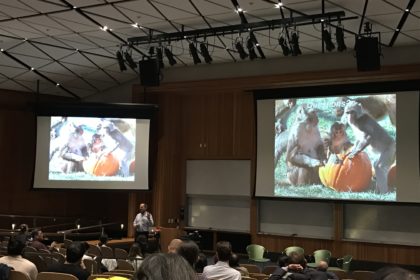
By: Robert E. Snyder, PhD, MPH
Berkeley, CA, Nov 15, 2016
On October 29, The UC Berkeley Center for Global Public Health convened a symposium on Berkeley’s campus inviting a diverse group of experts from UC Berkeley, UC San Francisco, UC Davis, and Stanford to provide updates on the status of Zika virus research.
The morning kicked off with a series of in-depth presentations describing the pathogenesis of the disease. Among others, professor Lenore Pereira (UCSF) highlighted the results of her collaborative research with professor Eva Harris (UCB) where they show the capability of the antibiotic duramycin to reduce viral yield and infection in animal models.
The day was highlighted by two panel discussions. The first, an update to the Center’s similarly-composed panel from March 2016 (link to video and summary), included a discussion of the disease’s clinical presentation, as well as dialogue on how reproductive rights and the environment relate to the disease. The highlight of Professor Lee Riley’s (UCB) discussion of the clinical presentation of Zika virus in children came when he shared results from his group’s ongoing study in Rio de Janeiro, Brazil. The panel closed with a provocative discussion around women’s rights and the relationship between the disease and family planning services for women.
Our second panel shifted the lens from global to local, as Dean Stefano Bertozzi (UCB) guided a discussion with representatives from the California Department of Public Health and the Alameda Country Mosquito Abatement District. Many of the symposium’s attendees were reassured when the panel indicated that the Zika vector (Aedes aegypti) had only been found in the Bay Area once before, and that it was unlikely for the vector to facilitate local transmission of the disease as an endemic species. However, they also urged caution in drawing conclusions related to the disease given our limited understanding of Zika’s ecological niche and impact thus far.
The symposium was recorded in its entirety and live-streamed. Individual presentations can be found on YouTube at the following url: https:www.youtube.com/playlist?list=PLlWRakIe2t82gyHYuRMBXqxWgumn0E-XE
